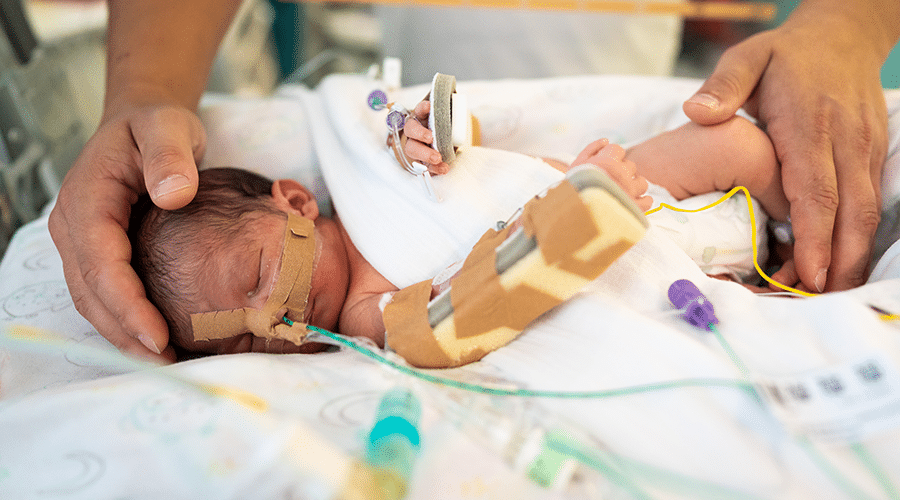
A new international clinical trial funded by the Cerebral Palsy Alliance Research Foundation has revealed promising findings that could further reduce the rates and severity of cerebral palsy in premature babies.
The study, Cerebral Oxygenation Stability in Extremely Preterm Infants, explored whether near-infrared spectroscopy (NIRS), a technology that measures oxygen levels in the brain, can improve oxygen stability in babies born before 29 weeks’ gestation.
Conducted across five leading neonatal intensive care units in Australia, New Zealand and the United States, the trial brought together clinicians, researchers and families united by a shared goal – to prevent brain injury in the most vulnerable newborns.
The study included 100 extremely preterm infants who were randomly assigned to receive either standard care or continuous NIRS monitoring guided by a dedicated treatment protocol.
Key findings
Infants in the NIRS-guided group experienced far greater brain oxygen stability, spending just 5.7% of time outside the safe range (65–90%) compared to 39.6% in the standard care group.
Importantly, there were no increases in mortality or adverse outcomes, confirming that NIRS-guided care is both safe and effective.
Dr Himanshu Popat, Clinical Lead and Co-director of the Grace Centre for Newborn Intensive Care Unit at the Children’s Hospital at Westmead said, “Our study showed that a special brain monitor to guide care for extremely premature babies helped keep their brain oxygen levels more stable in the first few days after birth.
This safe and simple approach could be an important step toward protecting these babies’ brains and reducing the rate and severity of cerebral palsy.”
Improved brain oxygenation in preterm infants is a key step in preventing brain injury – one of the major causes of cerebral palsy. Research breakthroughs like this are helping drive a 40% reduction in the rate and severity of cerebral palsy seen over the past two decades.
This trial highlights CPA’s commitment to global research collaboration and supporting studies that improve lifelong outcomes for people with cerebral palsy.
This study was supported by the Cerebral Palsy Alliance Research Foundation and registered with the Australian New Zealand Clinical Trials Registry (ACTRN12621000778886).